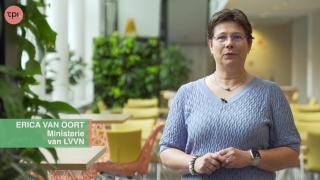Characterizing pancreatic cancer with omics
Pancreatic ductal adenocarcinoma (PDAC) is known for its aggressive biology and lethality. Due to a low success rate of current diagnostic and therapeutic approaches in clinic, there is an urgent need for preclinical research studies to investigate the underlying biology of this malignancy. This knowledge is indispensable to facilitate the development and validation of potential new therapeutic compounds. Superior to conventional biomedical research models, the focus of this study is on the development and use of a well-established patient-derived 3D in vivo model, mimicking the tumor as it is present in a human body. The development and characterization of pancreatic cancer derived organoids. This model is extensively analysed using advanced histological methods omics technology to perform tumor subtyping. 15 established PDAC organoid lines and their corresponding parental tumors are validated using immunostainings and DNA hotspot sequencing. This study is the first to show in situ detection of important driver mutations of pancreatic cancer, like KrasG12D, both in parental tumor and organoids. Additionally, specific culture conditions are defined to develop subtype-specific organoids which are validated using multiplex RNA in situ hybridization and transcriptomics. We are proud to collaborate in a fruitful international project, aiming to set-up a pre-clinical screening platform for pancreatic cancer based on patient-derived organoids -and xenografts. Altogether, spatial-omics in depth analysis of both models will demonstrate (1) high resemblance to parental tissue and (2) subtype-specific signatures associated with type of model. Ultimately, the screening platform can be used by pharmaceutical companies to facilitate oncological drug testing in a subtype specific way.
Publications Ilse Rooman's lab:
https://pubmed.ncbi.nlm.nih.gov/34330784/
https://pubmed.ncbi.nlm.nih.gov/31161208/
New

Helpathon #12 – Can you help Erica?

The NAM Navigator: A unique repository for information on the validation and acceptance of New Approach Methodologies
